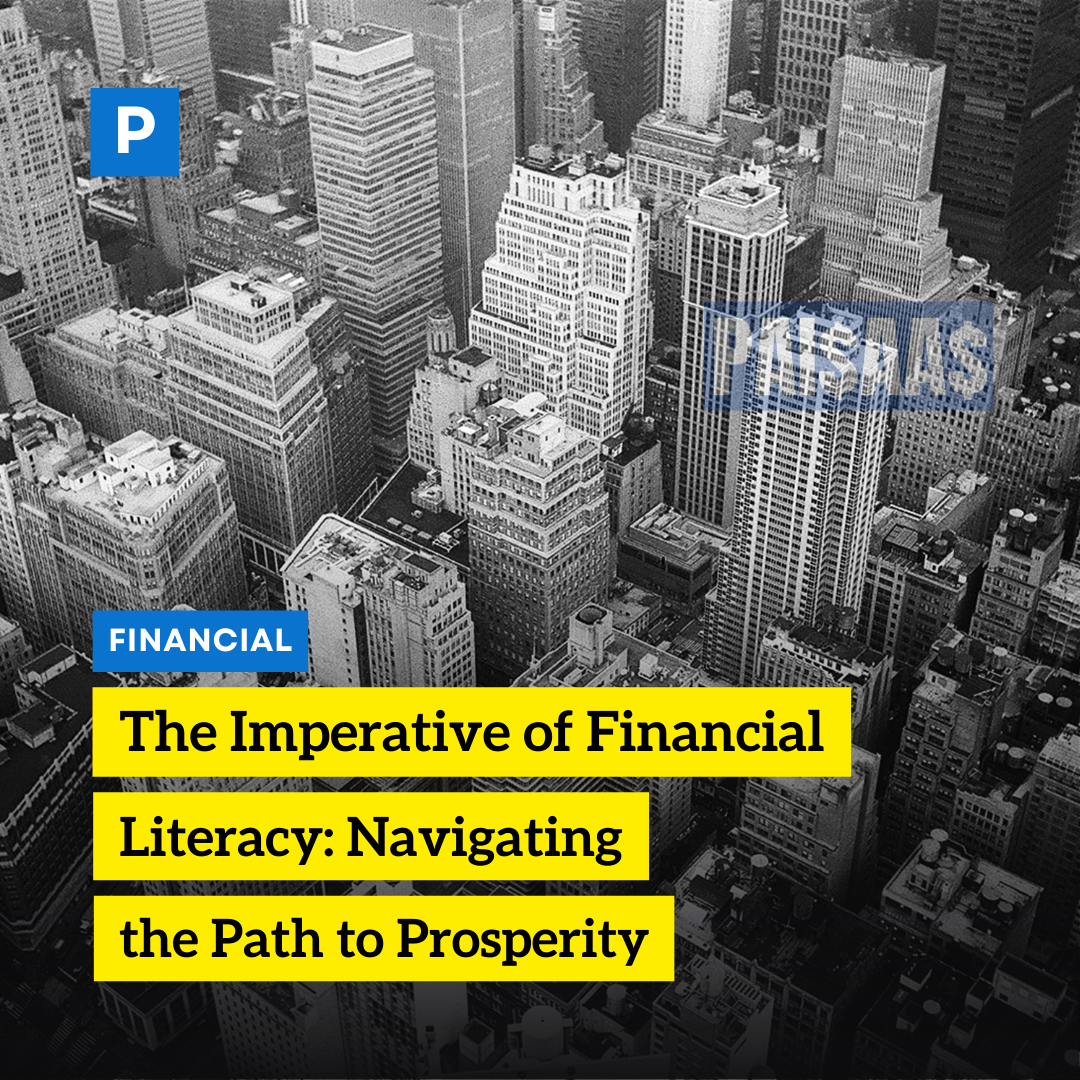

The Imperative of Financial Literacy: Navigating the Path to Prosperity.
The Imperative of Financial Literacy: Navigating the Path to Prosperity
In today’s complex and ever-changing financial landscape, possessing the knowledge and skills to make informed decisions about money is more critical than ever. Financial literacy, the ability to understand and manage personal finances effectively, is an essential skillset that empowers individuals to navigate the path to prosperity. With low levels of financial literacy prevalent in many societies, it is crucial to recognize the need for improved education and support systems that equip individuals with the tools they need to achieve financial well-being.
Financial literacy encompasses a wide range of topics, including budgeting,
saving, investing, debt management, and understanding financial products and services. Unfortunately, many individuals lack even the most basic understanding of these concepts, leading to detrimental financial decisions and long-term consequences. From high levels of consumer debt to inadequate retirement savings, the repercussions of financial illiteracy can be far-reaching and impact individuals and communities alike.
One of the primary reasons for the low financial literacy rates is the absence of comprehensive financial education in schools. Many education systems around the world fail to prioritize financial literacy as part of their curriculum, leaving young adults ill-prepared to navigate the financial challenges they will face in adulthood. By incorporating financial education into the curriculum from an early age, schools can equip students with the knowledge and skills necessary to make sound financial choices and build a strong foundation for their future.
Financial literacy is not just about acquiring knowledge; it is also about developing the right mindset and habits. It involves cultivating a sense of responsibility, discipline, and foresight when it comes to managing money. By instilling these values early on and reinforcing them throughout one’s life, individuals can develop healthy financial habits that contribute to long-term financial stability.
The benefits of financial literacy extend beyond individual well-being.
A financially literate population strengthens the overall economy and society as a whole. Individuals who possess financial knowledge are more likely to make informed decisions, contribute to the economy, and avoid financial pitfalls that can lead to economic instability. By equipping individuals with the tools to manage their finances effectively, societies can reduce financial inequality, promote economic growth, and create a more prosperous future for all.
To address the need for financial literacy, various initiatives and resources have emerged. Nonprofit organizations, government agencies, and financial institutions are playing a crucial role in promoting financial education and awareness. These initiatives provide workshops, online courses, and educational materials that aim to enhance financial knowledge and empower individuals to take control of their financial lives. By partnering with schools, community organizations, and workplaces, these efforts are reaching a broader audience and making financial literacy more accessible.
Technology also plays a vital role in promoting financial literacy.
Mobile applications, online platforms, and interactive tools have made it easier for individuals to track their spending, set financial goals, and access educational resources. These digital solutions provide practical and user-friendly ways for individuals to learn about personal finance and manage their money effectively. By leveraging technology, financial literacy initiatives can reach individuals in remote areas, bridge the digital divide, and cater to diverse learning styles.
Improving financial literacy requires a multi-faceted approach.
It begins with governments and policymakers recognizing the importance of financial education and integrating it into the education system. Additionally, financial institutions should prioritize transparency and simplify the language used in financial products and services to ensure individuals can make informed decisions. Employers can also play a role by offering workplace financial wellness programs that provide resources and support to employees.
On an individual level, there are steps one can take to enhance their financial literacy. Reading books, attending seminars, and seeking guidance from financial advisors are all valuable ways to expand knowledge and skills. Taking proactive steps to create a budget, save regularly, and invest wisely are practical ways to apply financial literacy principles to one’s own life.
Conclusion
In conclusion, the need for financial literacy is undeniable. It is a fundamental skillset that empowers individuals to make informed decisions about their money, avoid financial pitfalls, and build a secure financial future. By prioritizing financial education in schools, leveraging technology, and fostering a culture of financial responsibility, societies can equip individuals with the tools they need to navigate the path to prosperity.
Financial literacy is not a luxury; it is a necessity that contributes to individual well-being, economic stability, and overall societal progress. Let us embrace this imperative and work towards a future where everyone has the knowledge and skills to achieve financial well-being.




